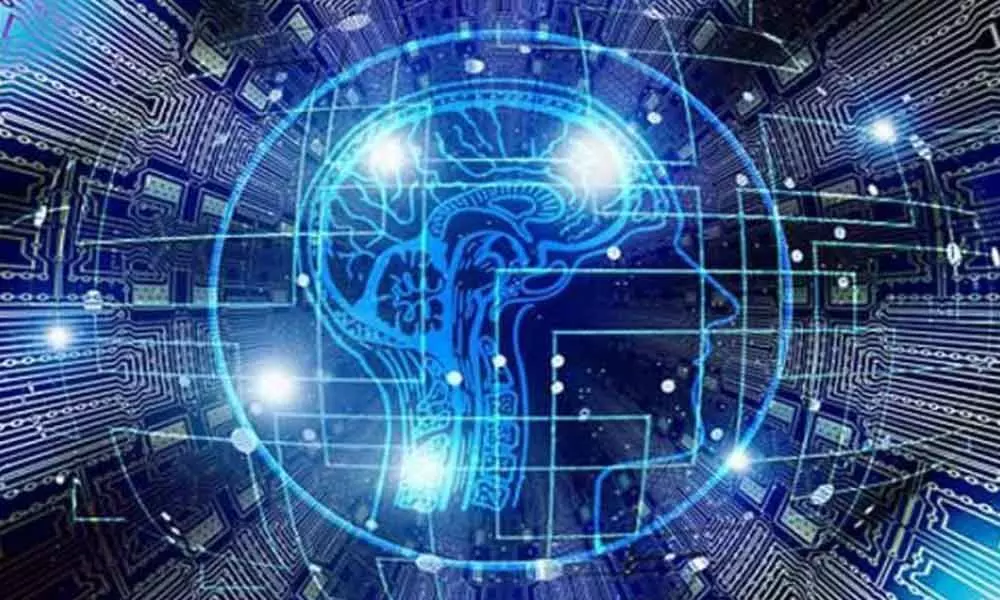Live
- Tender apology to CM, mantri tells Allu Arjun
- CM condemns attack on Allu Arjun’s house
- Allu Arjun’s house attacked, police arrest 6 persons in city
- APSRTC to replace diesel buses with electric buses
- Komatireddy brothers should get Oscar for lying: BRS
- KTR asks farmers to up the ante against TG govt
- SCB residents raise pitch for fair compensation for acquired lands
- TGMC crackdown on quackery continues, over 400 FIRs filed
- TG seeks PMAY fund boost as 80pc of State turns urban
- Don’t buy assets from known ganja smugglers: DIG
Just In
IIT Kharagpur develops AI-powered tech for reading legal cases


Researchers at IIT Kharagpur have evolved an Artificial Intelligence-aided method to automate the reading of legal case judgments, the premier institute said in a statement on Friday.
Kharagpur (IANS): Researchers at IIT Kharagpur have evolved an Artificial Intelligence-aided method to automate the reading of legal case judgments, the premier institute said in a statement on Friday.
The researchers from IIT Kharagpur's Computer Science and Engineering department have developed two deep neural models to understand the rhetorical roles of sentences in a legal case judgment, which could prove phenomenal in India where AI is yet to sufficiently penetrate the legal field.
The country uses a Common Law system that prioritizes the doctrine of legal precedent over statutory law, and where legal documents are often written in an unstructured way.
"Taking 50 judgments from the Supreme Court of India, we segmented these by first labelling sentences with the help of three senior law students from IIT Kharagpur's Rajiv Gandhi School of Intellectual Property Law, then performing extensive analysis of the human-assigned labels and developing a high-quality gold standard corpus to train the machine to carry out the task," explained research lead Professor Saptarshi Ghosh.
Unlike earlier attempts which required substantial human intervention, the neural methods used by Ghosh's team enables automatic learning of the features, given a sufficient amount of data, and can be used across multiple legal domains.
This method can help in several downstream tasks such as summarization of legal judgments, legal search, case law analysis, and other functions.
In countries such as the US, Britain, Japan, Singapore and Australia, Artificial Intelligence is being used to perform legal research, review documents during litigation and conduct due diligence, analyse contracts to determine whether they meet pre-determined criteria, and to even predict case outcomes.
Ghosh's research scholar Paheli Bhattacharya is using network and text analysis to understand if two legal documents are similar. Among the other researchers are Kripabandhu Ghosh from the Tata Research Development and Design Centre, Pune, and Dr. Adam Wyner from Swansea University, UK. Shounak Paul is another research scholar associated with the project.
"We are trying to build an AI system which can give guidance to the common man about which laws are being violated in a given situation, or if there is merit in taking a particular situation to court, so that legal costs can be minimised," said Ghosh.
A paper published on this research won the prestigious 'Best Paper Award' at JURIX 2019, the International Conference on Legal Knowledge and Information Systems, at Madrid.
The project is being supported by the Science & Engineering Research Board (SERB) of the Department of Science and Technology, Government of India, under the project, 'NYAYA: A Legal Assistance System for Legal Experts and the Common Man in India'.

© 2024 Hyderabad Media House Limited/The Hans India. All rights reserved. Powered by hocalwire.com






